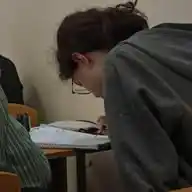
CSS Exam Desk ℠
February 15, 2025 at 11:24 AM
CSS 2025 - Essay Paper 🕊️
1. *Patriotism is supporting your country all the time, and your government when it deserves it.*
- Dimensions: Political Science, Ethics, Nationalism, Civic Responsibility.
- Approach: - Define patriotism and distinguish it from blind nationalism. - Discuss the balance between loyalty to the nation and critical engagement with the government.
- Key Arguments: - Patriotism involves active participation in civic duties, not just passive support. - Criticizing the government when it fails to serve the people is a form of patriotism. - Historical examples of patriotic movements that challenged unjust governments (e.g., Civil Rights Movement, Indian Mutiny). - Ethical considerations: When does dissent become necessary?
2. *Brains, like hearts, go where they are appreciated.*
- Dimensions: Sociology, Psychology, Human Resources, Migration Studies.
- Approach: - Analyze the factors that influence talent migration and retention. - Discuss the importance of recognition and appreciation in motivating individuals.
- Key Arguments: - Brain drain occurs when skilled individuals migrate to countries or organizations that value their contributions. - Economic incentives, work environment, and cultural appreciation play key roles in attracting talent. - Case studies of countries that have successfully retained talent through policies and incentives. - The role of education and innovation in creating environments where talent thrives.
3. *Reforestation as a Global Urgency.*
- Dimensions: Environmental Science, Global Policy, Sustainability, Climate Change.
- Approach: - Highlight the environmental, economic, and social benefits of reforestation. - Discuss the urgency of addressing deforestation and its global impact.
- Key Arguments: - Reforestation helps combat climate change by absorbing carbon dioxide. - It restores biodiversity and protects endangered species. - Economic benefits include job creation in sustainable industries. - Global cooperation is needed to implement large-scale reforestation projects (e.g., the Great Green Wall in Africa).
4. *Hamas-Israel Conflict: A Test Case for World Conscience.*
- Dimensions: International Relations, Conflict Studies, Ethics, Human Rights.
- Approach: - Examine the historical roots and ongoing dynamics of the conflict. - Analyze the role of the international community in addressing the crisis.
- Key Arguments: - The conflict is rooted in historical, religious, and territorial disputes. - Humanitarian issues, such as the plight of civilians, must be prioritized. - The failure of international organizations to mediate effectively. - The need for a two-state solution or other peaceful resolutions. (approach to write this essay topic will vary. Arguments to be molded as per demand)
— CSS Exam Desk ℠
5. *Rich in politicians, we desperately need statesmen* .
- Dimensions: Political Science, Leadership Studies, Governance.
- Approach: - Differentiate between politicians (focused on short-term gains) and statesmen (focused on long-term vision). - Discuss the qualities of effective leadership.
- Key Arguments: - Politicians often prioritize personal or party interests over national welfare. - Statesmen are visionary leaders who prioritize the common good (e.g., Nelson Mandela, Abraham Lincoln). - The current political landscape lacks statesmen, leading to governance challenges. - Reforms needed to encourage ethical and visionary leadership.
6. *True peace is not merely the absence of tension; it is the presence of justice.*
- Dimensions: Philosophy, Law, Social Justice, Conflict Resolution.
- Approach: - Explore the relationship between peace and justice. - Discuss how systemic injustices undermine true peace.
- Key Arguments: - Peace requires addressing root causes of conflict, such as inequality and discrimination. - Examples of social justice movements that led to lasting peace (e.g., South Africa’s Truth and Reconciliation Commission). - The role of legal and institutional frameworks in promoting justice. - Without justice, peace is fragile and temporary.
7. *To reign is worth ambition though in Hell.*
- Dimensions: Literature, Philosophy, Power Dynamics, Ambition.
- Approach: - Interpret the philosophical and literary significance of the statement. - Discuss the nature of ambition and power.
- Key Arguments: - Ambition drives individuals to seek power, even in adverse conditions. - Literary examples (e.g., Milton’s _Paradise Lost_ , Shakespeare’s _Macbeth_ ) that explore the consequences of unchecked ambition. - Ethical considerations: When does ambition become destructive? - The psychological and societal impacts of relentless ambition.
8. *Frailty is no more the name of Woman.*
- Dimensions: Gender Studies, Feminism, Sociology.
- Approach: - Challenge traditional stereotypes about women’s fragility. - Highlight the strength and resilience of women in various fields.
- Key Arguments: - Historical and contemporary examples of strong women (e.g., Malala Yousafzai, Rosa Parks). - Feminist theories that redefine gender roles and expectations. - The societal impact of empowering women and breaking stereotypes. - The need for continued advocacy for gender equality.
9. *Dynastic politics is the worst mockery of democracy.*
- Dimensions: Political Science, Democracy, Governance.
- Approach: - Critique the practice of dynastic politics and its impact on democracy. - Discuss the need for meritocracy in political systems.
- Key Arguments: - Dynastic politics undermines democratic principles by concentrating power in a few families. - Case studies of countries or regions where dynastic politics is prevalent (e.g., South Asia, the Philippines). - The negative impact on governance, innovation, and public trust. - Reforms needed to promote transparency and equal opportunities in politics.
10. *An investment in knowledge pays the best interest.*
- Dimensions: Education, Economics, Personal Development.
- Approach: - Highlight the long-term benefits of education and knowledge. - Discuss the economic and social impacts of investing in education.
- Key Arguments: - Education leads to economic growth and innovation. - Case studies of countries that have invested heavily in education (e.g., Finland, South Korea). - The role of education in reducing poverty and inequality. - Personal development: Knowledge empowers individuals to make informed decisions and contribute to society.
— CSS Exam Desk ℠
❤️
👍
23